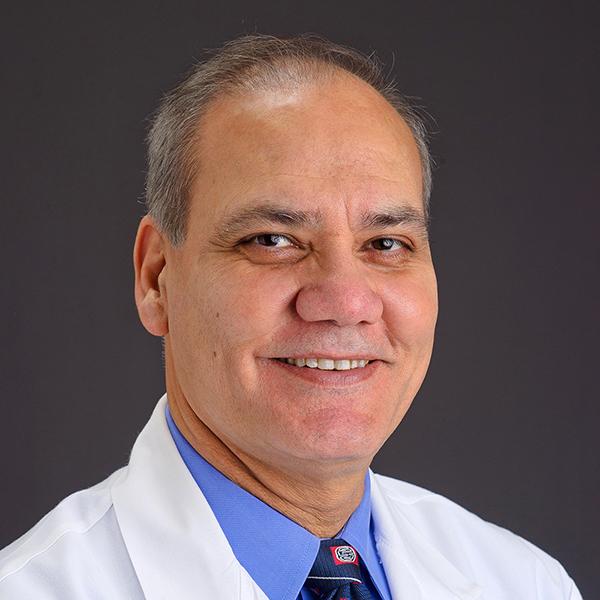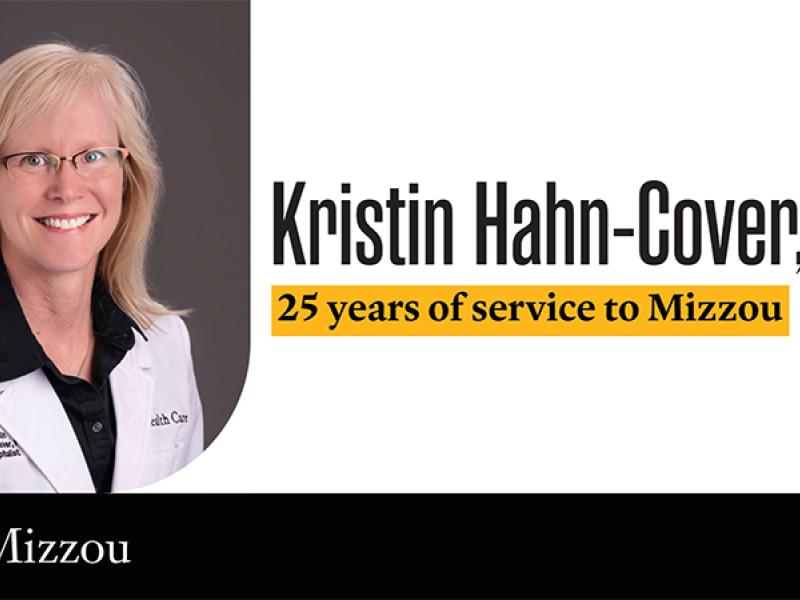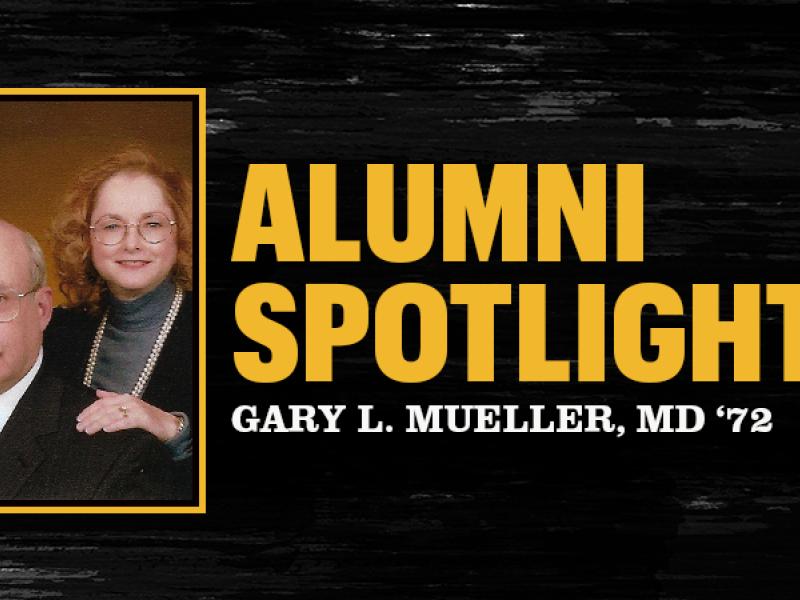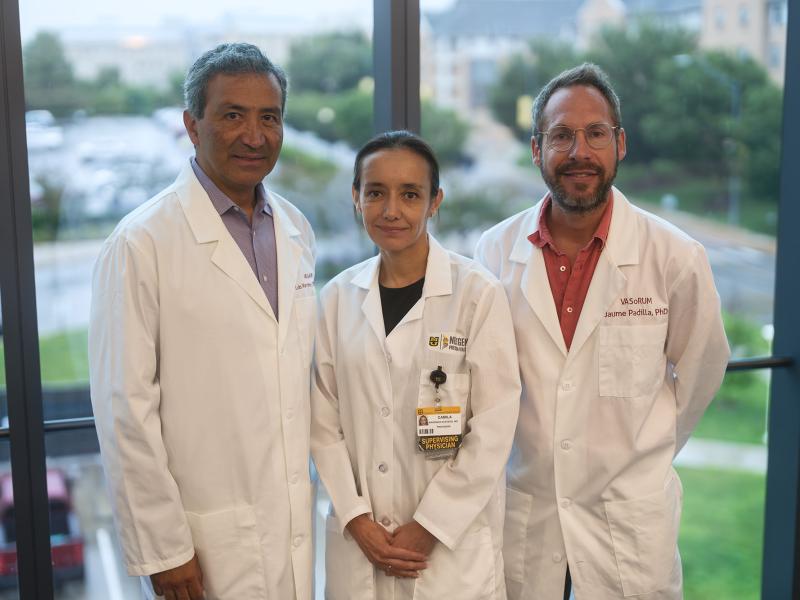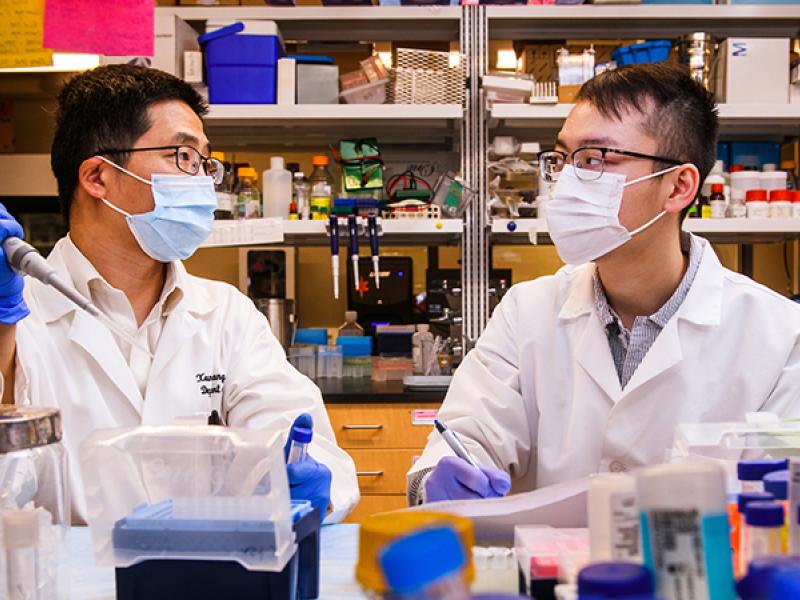The primary mission of our 3-year fellowship program is to teach the art and science of gastroenterology to highly motivated and accomplished internists.
Trainees become familiar with the presentation, natural history, pathophysiology, diagnosis and treatment of gastrointestinal, liver and hepatobiliary diseases through outpatient and inpatient care, endoscopic activities, divisional and department conferences, participation in research, and independent self-motivated learning. Clinical Duties are split between the University of Missouri Hospitals and Clinics and the Harry S. Truman VA Hospital and its clinics. Graduates of the training program are fully prepared to enter independent clinical and academic practice.
Overview of Educational Program
The gastroenterology fellowship program has a long history of graduating outstanding gastroenterologists. Graduates of our training program are in private practice and academic programs throughout the country. Our program, which is accredited by the ACGME, is designed to provide opportunities for fellows to develop clinical competence in the broad field of gastroenterology, including hepatology, endoscopy, clinical nutrition, and GI oncology. In keeping with ACGME requirements, a minimum of 18 months of clinical experiences is required, including the equivalent of 5 months of hepatology. The other 18 months of training is dedicated to elective fields of clinical training and to research intended to enhance competency.
Clinical Training
Clinical training currently is divided between University Hospital, the Harry S. Truman VA Hospital, and the Missouri Digestive Health Clinic. These centers, which are located in close proximity to one another, offer outstanding facilities and serve a large primary care and referral population throughout mid-Missouri. Training time is divided between the inpatient and outpatient settings. As with most subspecialty training programs, teaching and management rounds are combined in our GI fellowship program. Rounds are patient-based, in which current cases are presented as a basis for discussion of such points as interpretation of clinical data, differential diagnosis, pathophysiology, specific management of the patient, the appropriate use of technology, the incorporation of evidence and patient values in clinical decision making, and disease prevention.
Research
Fellows generally do two to six months of research (clinical, translational, or basic) during their fellowship, under the direction of a faculty mentor. The amount of research depends on their career interest. All research projects are also formally monitored by a GI Research Mentoring Committee, composed of experienced researchers. It is the expectation of the GI faculty that the fellows’ research will be productive, and that it will be published, at the least, as an abstract in a peer-reviewed journal, and be submitted for presentation at a national subspecialty meeting. Fellows are also expected to write up their projects in manuscript form and to submit it to a peer-reviewed journal.
Conferences
The GI division has a variety of educational conferences that fellows attend and participate in (GI Didactic Conference, GI Board Review, Interesting Case Conference, Journal Club, Multi-Disciplinary Hepatobiliary Conference, GI Quality Conference, GI Research Conference, GI/Liver Pathology, GI Medical-Surgical Conference, and Visiting Professorships). During their training, fellows also attend two or more national meetings and conferences that supplement their educational experience.
How to Apply
The Division of Gastroenterology typically offers three to four positions yearly into our accredited three-year GI fellowship program. Our fellowship program begins July 1 of each year. We participate in the GI Fellowship Match Program and use the Electronic Residency Application Service (ERAS). In addition to a completed ERAS application, we will want to see a personal statement and at least three letters of recommendation.
Our application deadline is July 31, 2023. Selected candidates will be invited for virtual interviews in September and October to meet our faculty and fellows, and to learn more about the program first-hand. Match Day, through the NRMP, is December 2023.


